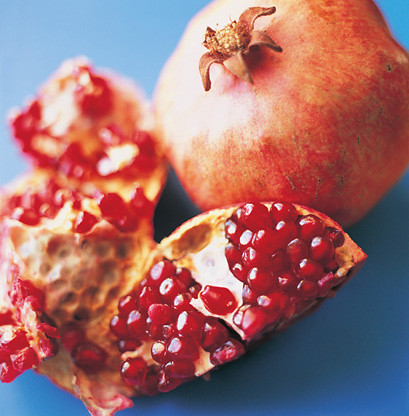 |
| Photo by Shimon Sandler |
I find the "Hymn to Demeter" one of the most interesting and appealing poems in the Homeric Hymns. The story is well known. Demeter, the goddess of the harvest, is the mother of Persephone. After her abduction by Hades (done with Zeus's permission), Persephone is forced to live in the underworld as Hades's wife. Demeter is heartbroken. As she searches for her missing daughter, she allows the fertile earth to go barren. Nothing grows. Mortals can make no sacrifices to the gods, for there is nothing to sacrifice.
Zeus, Persephone's father, eventually convinces Hades to allow Persephone to return to her mother. Hades says that she can only go back if she has eaten nothing while in the underworld. But during her time there she has eaten a few pomegranate seeds--and therefore must spend four months of each year with Hades rather than on earth.
The myth of Persephone is often used to explain the Earth's seasons. While Persephone is with her mother, Demeter makes the earth come alive and the fruits of the soil bloom. When Persephone must be with Hades, Demeter weeps and the earth enters winter and barrenness.
In the Homeric Hymns at large, the long stories about male gods deal explicitly with their births. Interestingly, the two stories about female gods--this one about Demeter and also the story of Aphrodite--deal with the fertility and sexuality of the goddesses instead of their births--that is, their ability to cause birth. Specifically, the poems address how Zeus tries to control--not always completely successfully--the power that the goddesses have because of their fertility and sexuality. As we see in this story, Zeus is so desperate to have life come back to the earth that he must allow Demeter to have a say in what happens to her daughter.
I'm fascinated by images of mortality interwoven with sexuality in this story. Persephone eats food not designed for the gods--that is, meant for mortals. Eating like a human condemns her to "die"--at least for a season, just as the earth does. Persephone eats against her will: when she is symbolically raped as Hades forces his seed into her ("most unwillingly" says Persephone in the Diane Rayor translation, he "put into me" the seed).
Effectively, the rape of Persephone turns her at least partly into a kind of mortal. She must confront death, at least a partial death, again and again. But Persephone shares something else with humans. It is through sexual reproduction--instituted when the man shares his seed with the woman--that mortals achieve their own sort of immortality. For Persephone, it means she must be in the land of the dead for one third of the year. For us, it is instead a blessing. Our children's children continue even after we are gone, making our own immortality as cyclical and halting as Persephone's.
No comments:
Post a Comment